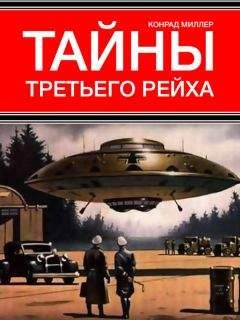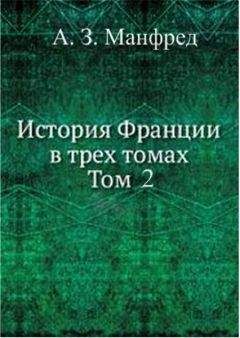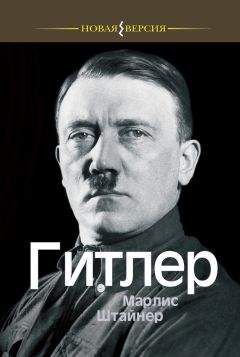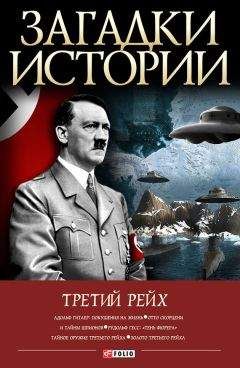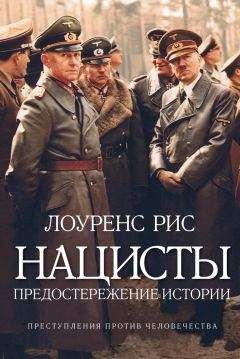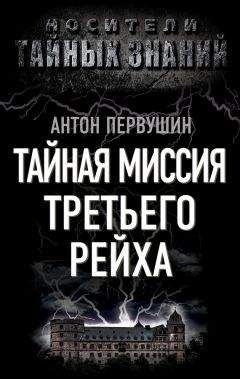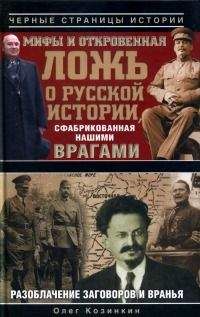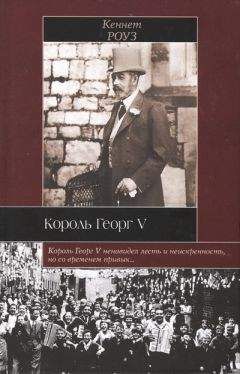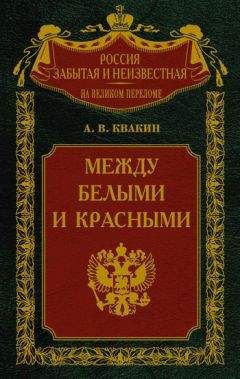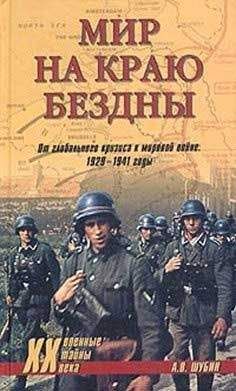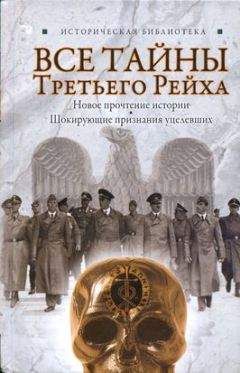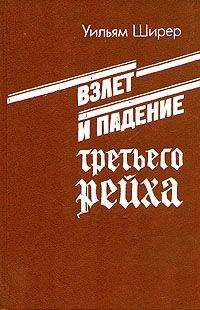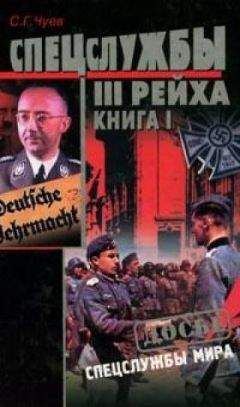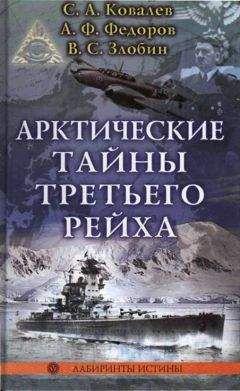Ричард Эванс - Третий рейх. Зарождение империи. 1920–1933
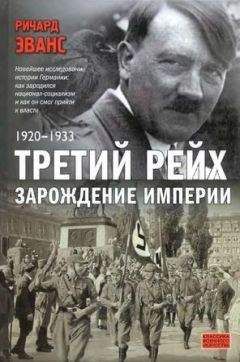
Скачивание начинается... Если скачивание не началось автоматически, пожалуйста нажмите на эту ссылку.
Жалоба
Напишите нам, и мы в срочном порядке примем меры.
Описание книги "Третий рейх. Зарождение империи. 1920–1933"
Описание и краткое содержание "Третий рейх. Зарождение империи. 1920–1933" читать бесплатно онлайн.
Предлагаемая книга открывает трилогию Ричарда Эванса, посвященную истории Третьего рейха. Она повествует о нелегком времени, пережитом Германией после Первой мировой войны, когда в атмосфере политического хаоса, экономических бедствий, массовых беспорядков и идеологической поляризации общества зарождалось тоталитарное нацистское государство. Изначально не представлявшие серьезной политической силы, нацисты в очень короткий срок установили в Германии однопартийную диктатуру и ввергли страну в глубочайший моральный, социальный и культурный кризис. Автор рассказывает о том, как это случилось, и пытается ответить на вопрос, был ли приход Гитлера к власти неизбежным и почему на протяжении 1920-х годов граждане свободной Веймарской республики все больше склонялись к идеалам авторитаризма.
Трилогия Ричарда Эванса — захватывающее и в то же время крайне подробное и исторически достоверное повествование о самой трагической эпохе в немецкой и европейской истории прошлого века.
296
Peter Hayes, Industry and Ideology: I.G. Farben in the Nazi Era (Cambridge, 1987), 16–17; Gerald D. Feldman, Hugo Stinnes: Biographie eines Industriellen 1870–1924 (Munich, 1998).
297
Mary Nolan, Visions of Modernity: American Business and the Modernization of Germany (New York, 1994).
298
Peukert, The Weimar Republic, 112-17.
299
Robert Brady, The Rationalization Movement in Germany: A Study in the Evolution of Economic Planning (Berkeley, 1933); James, The German Slump, 146-61.
300
Feldman, The Great Disorder, 343-44; Harold James, ‘Economic Reasons for the Collapse of the Weimar Republic’ в Ian Kershaw (ed.), Weimar: Why did German Democracy Fail? (London, 1990), 30–57, c. 33–4; см. также: Dieter Hertz-Eichenrode, Wirtschaftskrise und Arbeitsbeschaffung: Konjunkturpolitik 1925/26 und die Grundlagen der Krisenpolitik Brünings (Frankfurt am Main, 1981); Fritz Blaich, Die Wirtschaftskrise 1925/26 und die Reichsregierung: Von der Erwerbslosenfürsorge zur Konjunkturpolitik (Kallmünz, 1977); and Klaus-Dieter Krohn, Stabilisierung und ökonomische Interessen: Die Finanzpolitik des deutschen Reiches 1923–1927 (Düsseldorf, 1974).
301
Bernd Weisbrod, Schwerindustie in der Weimarer Republik: Interessenpolitik Zivischen Stabilisierung und Krise (Wuppertal, 1978), 415–56; James, The German Slump, 162–223.
302
Richard Bessel, ‘Why did the Weimar Republic Collapse?’ in Kershaw (ed.), Weimar; 120-52, с 136; Bernd Weisbrod, ‘The Crisis of German Unemployment Insurance in 1928/29 and its Political Repercussions’ в Wolfgang J. Mommsen (ed.), The Emergence of the Welfare State in Britain and Germany, 1850–1950 (London, 1981), 188–204; Richard J. Evans, ‘Introduction: The Experience of Mass Unemployment in the Weimar Republic’ in Richard J. Evans and Dick Geary (eds.), The German Unemployed: Experiences and Consequences of Mass Unemployment from the Weimar Republic to the Third Reich (London, 1987), 1-22, at 5–6; Merith Niehuss, ‘From Welfare Provision to Social Insurance: The Unemployed in Augsburg 1918–27’ в Evans and Geary (eds.), The German Unemployed, 44–72.
303
Turner, German Big Business, 19–46; Weisbrod, Schwerindustrie; см. также краткий обзор: J. Adam Tooze, ‘Big Business and the Continuities of German History, 1900–1945’ в Panikos Panayi (ed.), Weimar and Nazi Germany: Continuities and Discontinuities (London, 2001), 173-98.
304
Подробности скандала с Барматом см. в Bernhard Fulda, ‘Press and Politics in Berlin, 1924–1930’ (Cambridge Ph.D. dissertation, 2003), 63–71, 87-117.
305
Karl Rohe, Wahlen und Wählertraditionen in Deutschland (Frankfurt am Main, 1992), 124.
306
Falter, Hitlers Wähler, 327-8; Kurt Koszyk, Deutsche Presse 1914–1945: Geschichte der deutschen Presse, III (Berlin, 1972).
307
Babette Gross, Willi Münzenberg: Eine politische Biographie (Stuttgart, 1967).
308
Erich Schairer, ‘Alfred Hugenberg’, Mit anderen Augen: Jahrbuch der deutschen Sonntagszeitung (1929), 18–21, цитируется в англ. пер. в Kaes et al. (eds.), The Weimar Republic Sourcebook, 72–4; Dankwart Guratzsch, Macht durch Organisation: Die Grundlegung des Hugenbergschen Presseimperiums (Düsseldorf, 1974), 192-3, 244, 248.
309
Fulda, ‘Press and Polities’, table 1.
310
Modris Eksteins, The Limits of Reason: The German Democratic Press and the Collapse of Weimar Democracy (Oxford, 1975), 129-30, 249–50.
311
Fulda, ‘Press and Polities’, table 1.
312
Falter, Hitlers Wähler, 325-39.
313
Oswald Spengler, Der Untergang des Abendlandes: Umrisse einer Morphologie der Weltgeschichte, I: Gestalt und Wirklichkeit (Vienna, 1918), 73-5.
314
Arthur Moeller van den Bruck, Das Dritte Reich (3rd edn., Hamburg, 1931 [Berlin, 1923]), p. 300, 320; Gary D. Stark, Entrepreneurs of Ideology: Neo-Conservative Publishers in Germany, 1890–1933 (Chapel Hill, NC 1981); Agnes Stansfield, ‘Das Dritte Reich: A Contribution to the Study of the “Third Kingdom” in German Literature from Herder to Hegel’, Modern Language Review, 34 (1934), 156-72. Мёллер ван ден Брук изначально назвал свою консервативно-революционную утопию «Третий Путь»; см.: Mosse, The Crisis, 281.
315
EdgarJung, ‘Deutschland und die konservative Revolution’, in Deutsche über Deutschland (Munich, 1932), 369-82, выдержки в англ. пер. в Kaes etal., (eds.), The Weimar Republic Sourcebook, 352–4.
316
Jünger, In Stahlgewittern; see also Nikolaus Wachsmann, ‘Marching under the Swastika? Ernst Jünger and National Socialism, 1918-33’, Journal of Contemporary History, 33 (1998), 573-89.
317
Theweleit, Male Fantasies.
318
См. классическое исследован ие этих и других схожих стилей мышления: Kurt Sontheimer, Antidemokratisches Denken in der Weimarer Republik (Munich, 1978 [1962]).
319
James M. Ritchie, German Literature under National Socialism (London, 1983), 10–11; см. также: Peter Zimmermann, ‘Literatur im Dritten Reich’ в Jan Berg et ai (eds.), Sozialgeschichte der deutschen Literatur von 1918 bis zur Gegenwart (Frankfurt am Main, 1981), 361–416; Jobl Hermand and Frank Trommler, Die Kultur der Weimarer Republik (Munich, 1978), 128-92.
320
См.: Nitschke et al. (eds.) Jahrhundertwende; о «моральной панике» в вильгельмовский период см.: Richard J. Evans, Tales from the German Underworld: Crime and Punishment in the Nineteenth Century (London, 1998), 166–212; Gary Stark, ‘Pornography, Society and the Law in Imperial Germany’, Central European History, 14 (1981), 200-20; Bram Dijkstra, Idols of Perversity: Fantasies of Female Evil in Fin — de — Siecle Culture (New York, 1986); Robin Lenman, ‘Art, Society and the Law in Wilhelmine Germany: The Lex Heinze’, Oxford German Studies, 8 (1973), 86-113; Matthew Jefferies, Imperial Culture in Germany, 1871–1918 (London, 2003); о веймарской культуре см.: Peukert, The Weimar Republic, 164-77.
321
Hermand and Trommler, Die Kultur, 193–260.
322
Karen Koehler, ‘The Bauhaus, 1919–1928: Gropius in Exile and the Museum of Modern Art, N. Y., 1938’ в Richard A. Etlin (ed.), Art, Cultureand Media under the Third Reich (Chicago, 2002), 287–315; Barbara Miller Lane, Architecture and Politics in Germany, 1918–1945 (Cambridge, Mass., 1968), 70–78; Shearer West, The Visual Arts in Germany 1890–1936: Utopia and Despair (Manchester, 2000), 143-55; Hans Wingler, The Bauhaus — Weimar, Dessau, Berlin, Chicago 1919–1944 (Cambridge, Mass., 1978); Frank Whitford, The Bauhaus (London, 1984).
323
Gerald D. Feldman, ‘Right-Wing Politics and the Film Industry: Emil Georg Strauss, Alfred Hugenberg, and the UFA, 1917–1933’ в Christian Jansen etal. (eds.), Von der Aufgabe der Freiheit: Politische Verantwortung und bürgerliche Gesellschaft im 19. und 20. Jahrhundert: Festschrift für HansMommsen zum 5. November 1995 (Berlin, 1995), 219-30; Siegfried Kracauer, From Caligari to Hitler: A Psychological History of the German Film (Princeton, 1947), 214-16.
324
Andrew Kelly, Filming All Quiet on the Western Front — ‘Brutal Cutting, Stupid Censors, Bigoted Politicos’ (London, 1998) переиздана в мягкой обложке под названием All Quiet on the Western Front: The Story of a Film (London, 2002). Более общее описание веймарской культуры см. в классическом очерке: Peter Gay, Weimar Culture: The Outsider as Insider (London, 1969). Walter Laqueur, Weimar: A Cultural History 1918–1933 (London, 1974) содержит хороший обзор как консервативного большинства, так и авангардного меньшинства; см. также: Hermand and Trommler, Die Kultur; 350–437 о визуальном искусстве.
325
Erik Levi, Music in the Third Reich (London, 1994), 1-13; Hermand and Trommler, Die Kultur, 279–350.
326
Michael H. Kater, Different Drummers: Jazz in the Culture of Nazi Germany (New York, 1992), 3-28; Peter Jelavich, Berlin Cabaret (Cambridge, Mass., 1993), 202.
327
Peukert, The Weimar Republic, 178-90.
328
AT 43, in Merkl, Political Violence, 173.
329
Abrams, Workers' Culture, в частности глава 7.
330
Richard J. Evans, The Feminist Movement in Germany 1894–1933 (London, 1976), 112, 141; Rudolph Binion, Frau Lou: Nietzsche's Wayward Disciple (Princeton, 1968), 447.
331
James D. Steakley, The Homosexual Emancipation Movement in Germany (New York, 1975); John C. Fout, ‘Sexual Politics in Wilhelmine Germany: The Male Gender Crisis, Moral Purity, and Homophobia’, Journal of the History of Sexuality, 2 (1992), 388–421.
332
См.: Renate Bridenthal and Claudia Koonz, ‘Beyond Kinder; Küche, Kirche: Weimar Women in Politics and Work’ в Renate Bridenthal et al. (eds.), When Biology Became Destiny: Women in Weimar and Nazi Germany (New York, 1984), 33–65.
333
Planert, Antifeminismus.
334
Evans, The Feminist Movement, 145–201; Klaus Hohnig, Der Bund Deutscher Frauenvereineinder Weimarer Republik 1919–1923 (Egelsbach, 1995).
335
Atina Grossmann, Reforming Sex: The German Movement for Birth Control and Abortion Reform 1920–1950 (New York, 1995), 16; Steakley, The Homosexual Emancipation Movement; Fout, ‘Sexual Polities'; Charlotte Wolf’, Magnus Hirschfeld: A Portrait of a Pioneer in Sexology (London, 1986).
336
James Woycke, Birth Control in Germany 1871–1933 (London, 1988), 113-16, 121, 147-8; Grossmann, Reforming Sex; Cornelie Usborne,
The Politics of the Body in Weimar Germany: Women's Reproductive Rights and Duties (London, 1991).
337
Clifford Kirkpatrick, Nazi Germany: Its Women and Family Life (New York, 1938), 36; Elizabeth Harvey, ‘Serving the Volk, Saving the Nation: Women in the Youth Movement and the Public Sphere in Weimar Germany’ в Larry Eugene Jones and James Retallack (eds.), Elections, Mass Politics, and Social Change in Modern Germany: New Perspectives (New York, 1992), 201-22; Irene Stoehr, ‘Neue Frau und alte Bewegung? Zum Generationskonflikt in der Frauenbewegung der Weimarer Republik’ в Jutta Dalhoff et al. (eds.), Frauenmacht in der Geschichte (Düsseldorf, 1986), 390–400; Atina Grossmann, ‘“Girlkultur” or Thoroughly Rationalized Female: A New Woman in Weimar Germany’ в Judith Friedlander et al. (eds.), Women in Culture and Politics: A Century of Change (Bloomington, Ind., 1986), 62–80.
338
Raffael Scheck, Mothers of the Nation: Right-Wing Women in German Politics, 1918–1923; Hohnig, Der Bund; Ute Planert (ed.), Nation, Politik und Geschlecht: Frauenbewegungen und Nationalismus in der Moderne (Frankfurt am Main, 2000).
Подписывайтесь на наши страницы в социальных сетях.
Будьте в курсе последних книжных новинок, комментируйте, обсуждайте. Мы ждём Вас!
Похожие книги на "Третий рейх. Зарождение империи. 1920–1933"
Книги похожие на "Третий рейх. Зарождение империи. 1920–1933" читать онлайн или скачать бесплатно полные версии.
Мы рекомендуем Вам зарегистрироваться либо войти на сайт под своим именем.
Отзывы о "Ричард Эванс - Третий рейх. Зарождение империи. 1920–1933"
Отзывы читателей о книге "Третий рейх. Зарождение империи. 1920–1933", комментарии и мнения людей о произведении.







